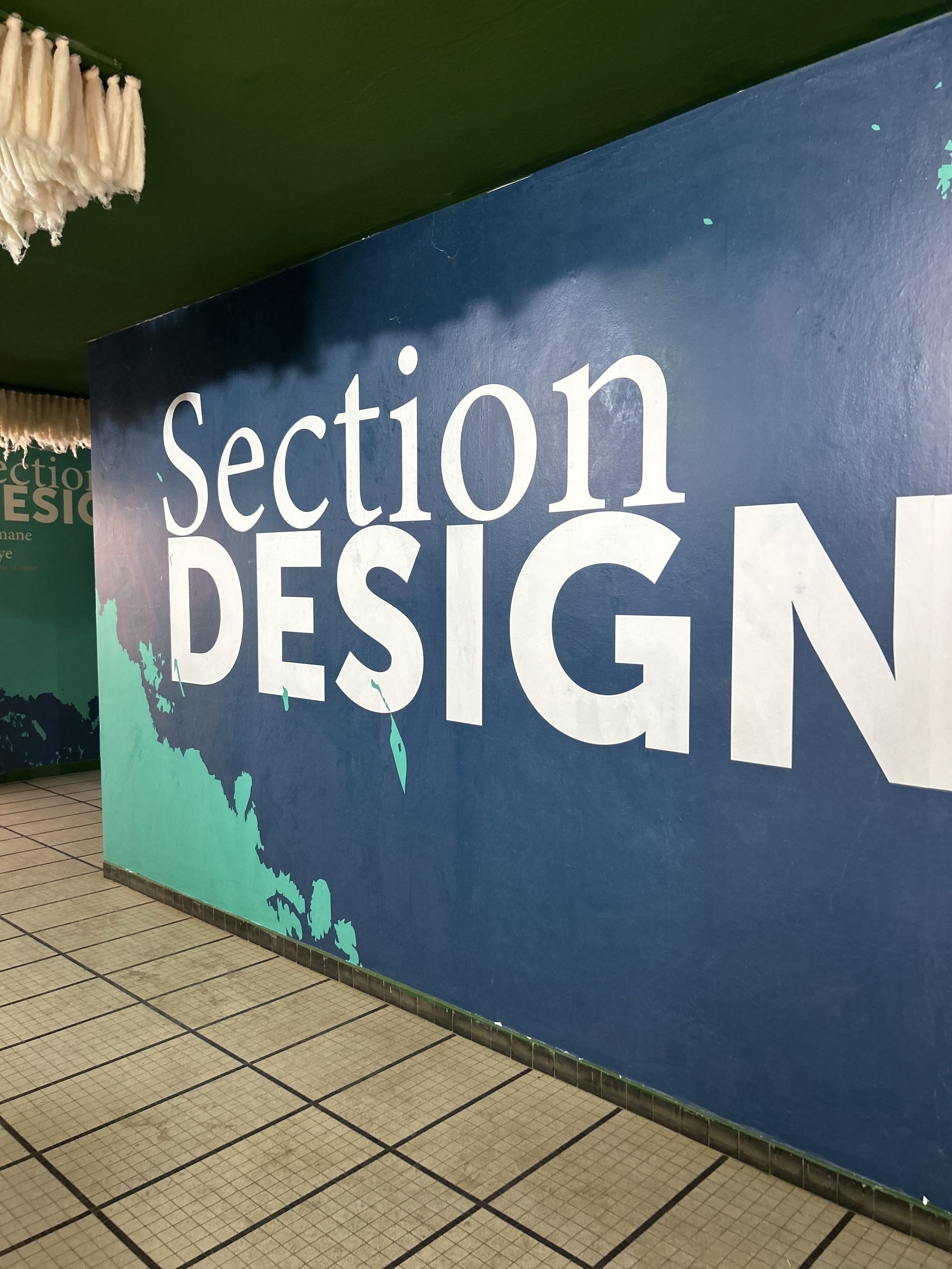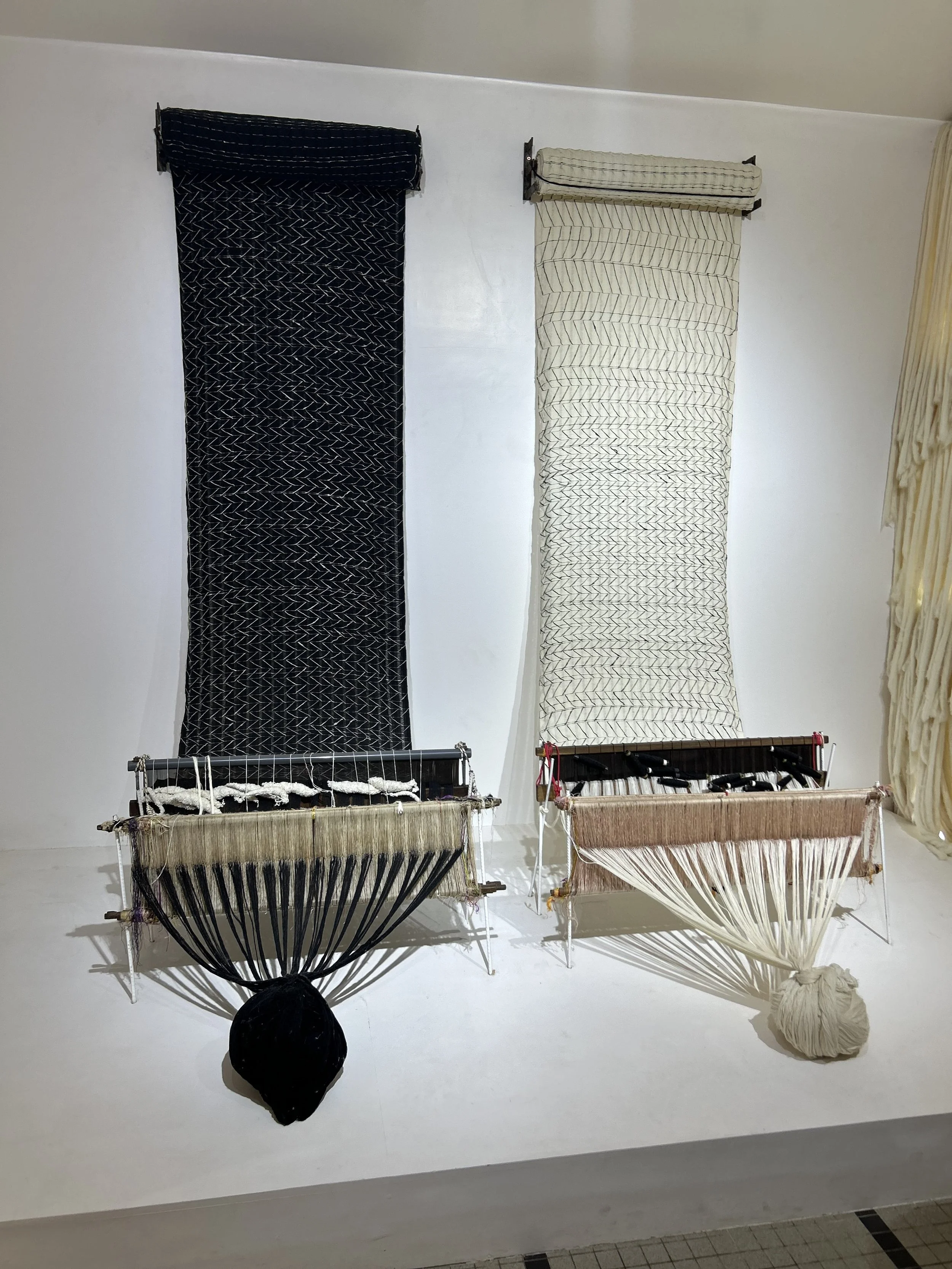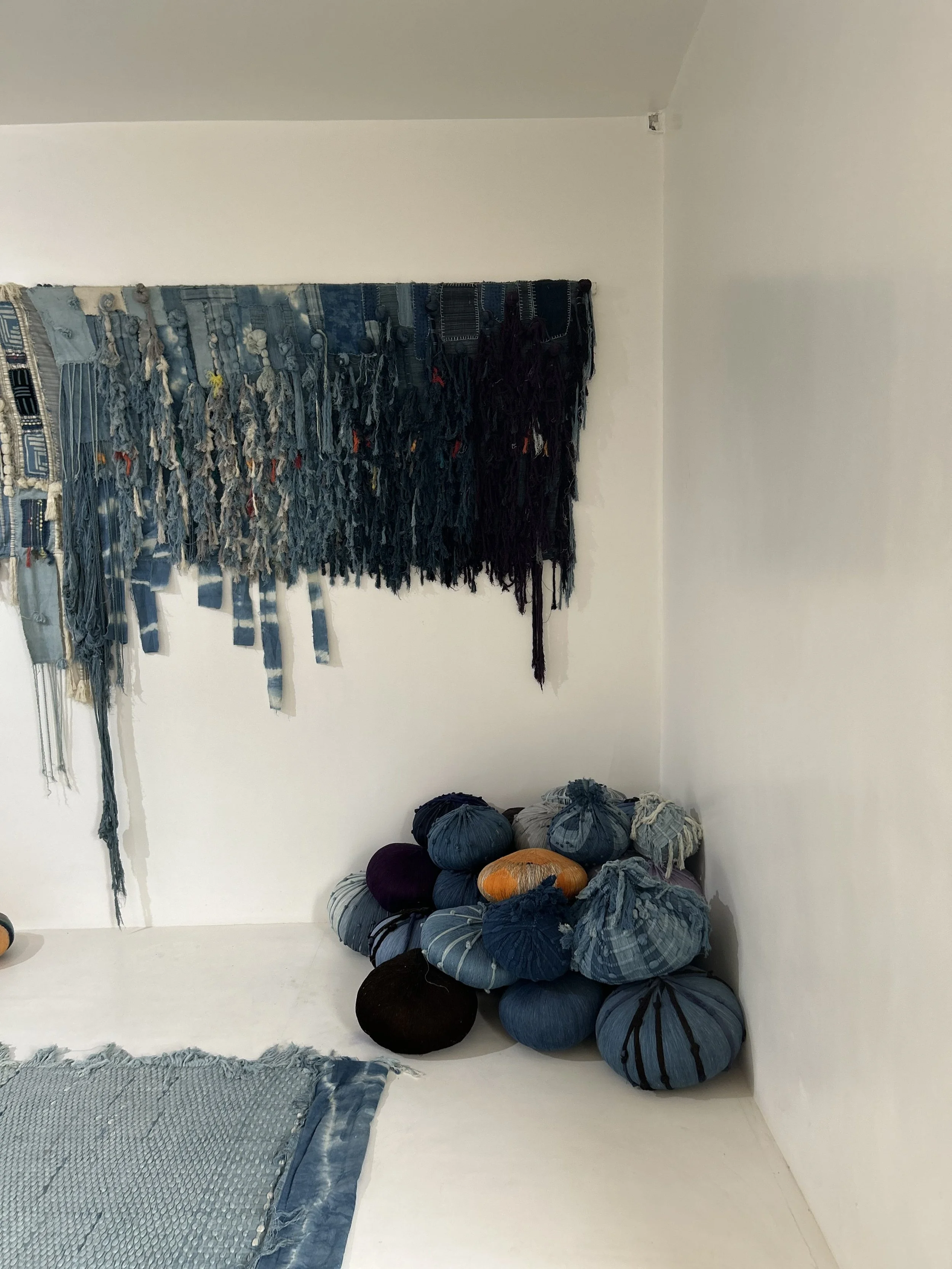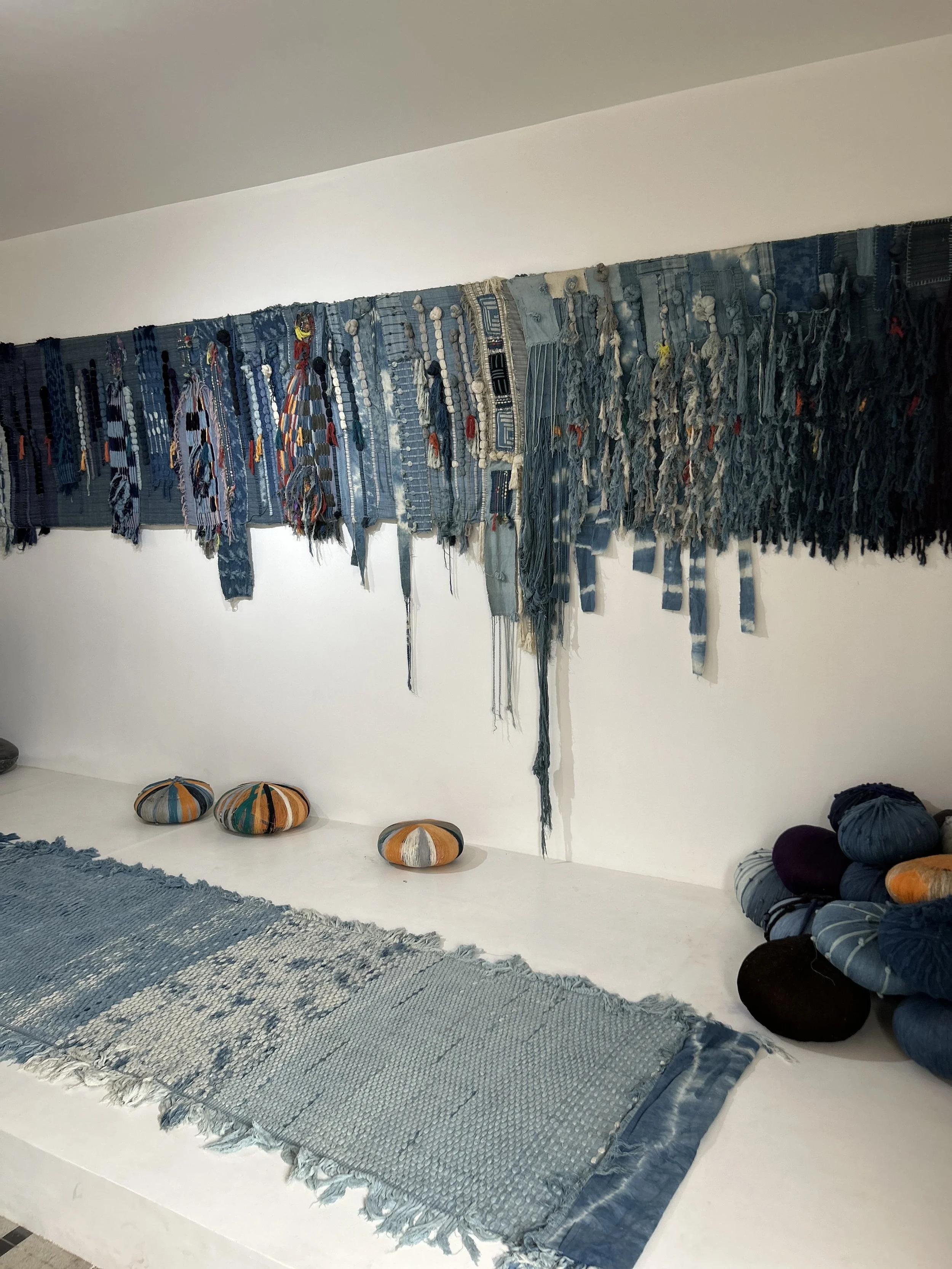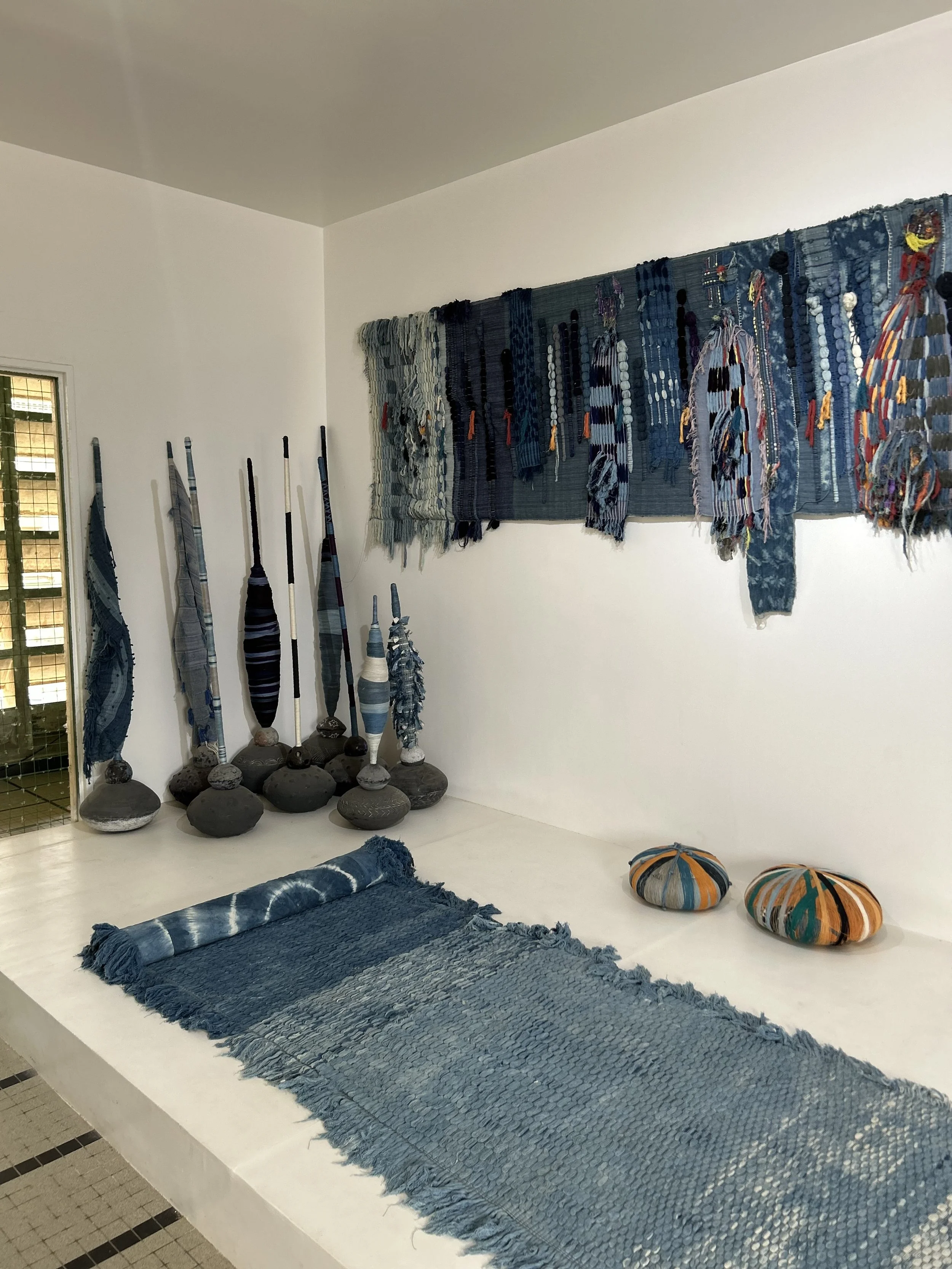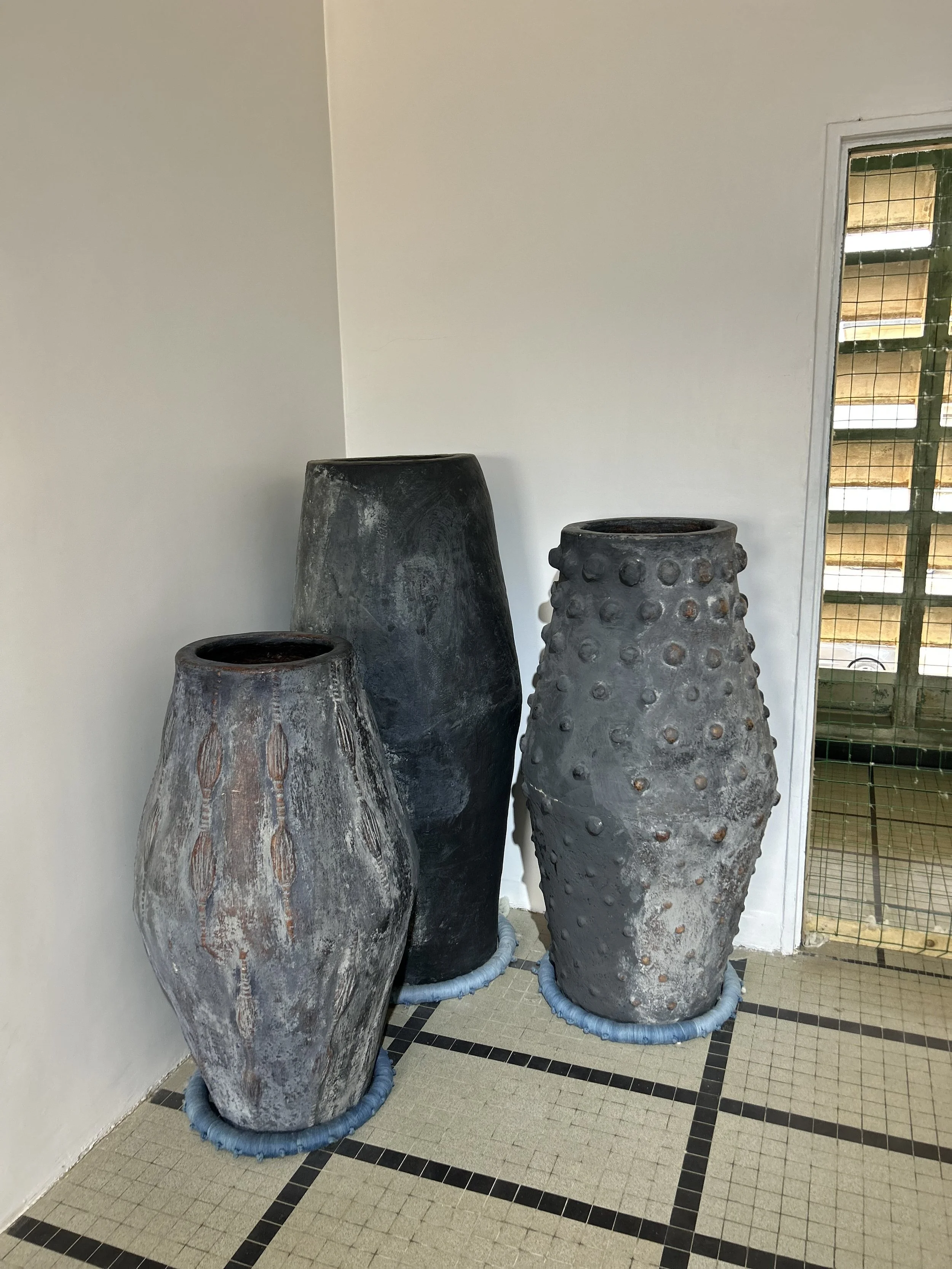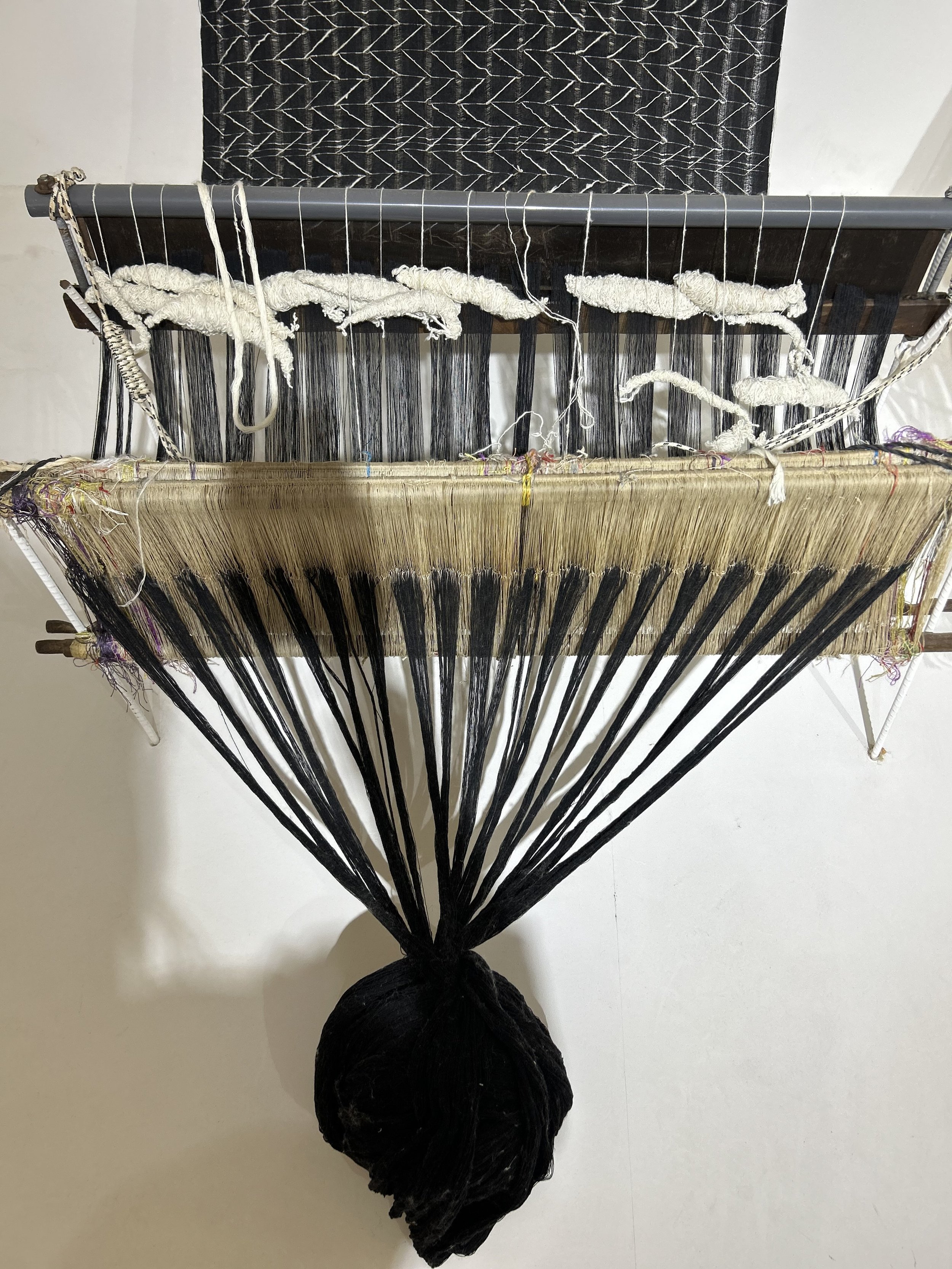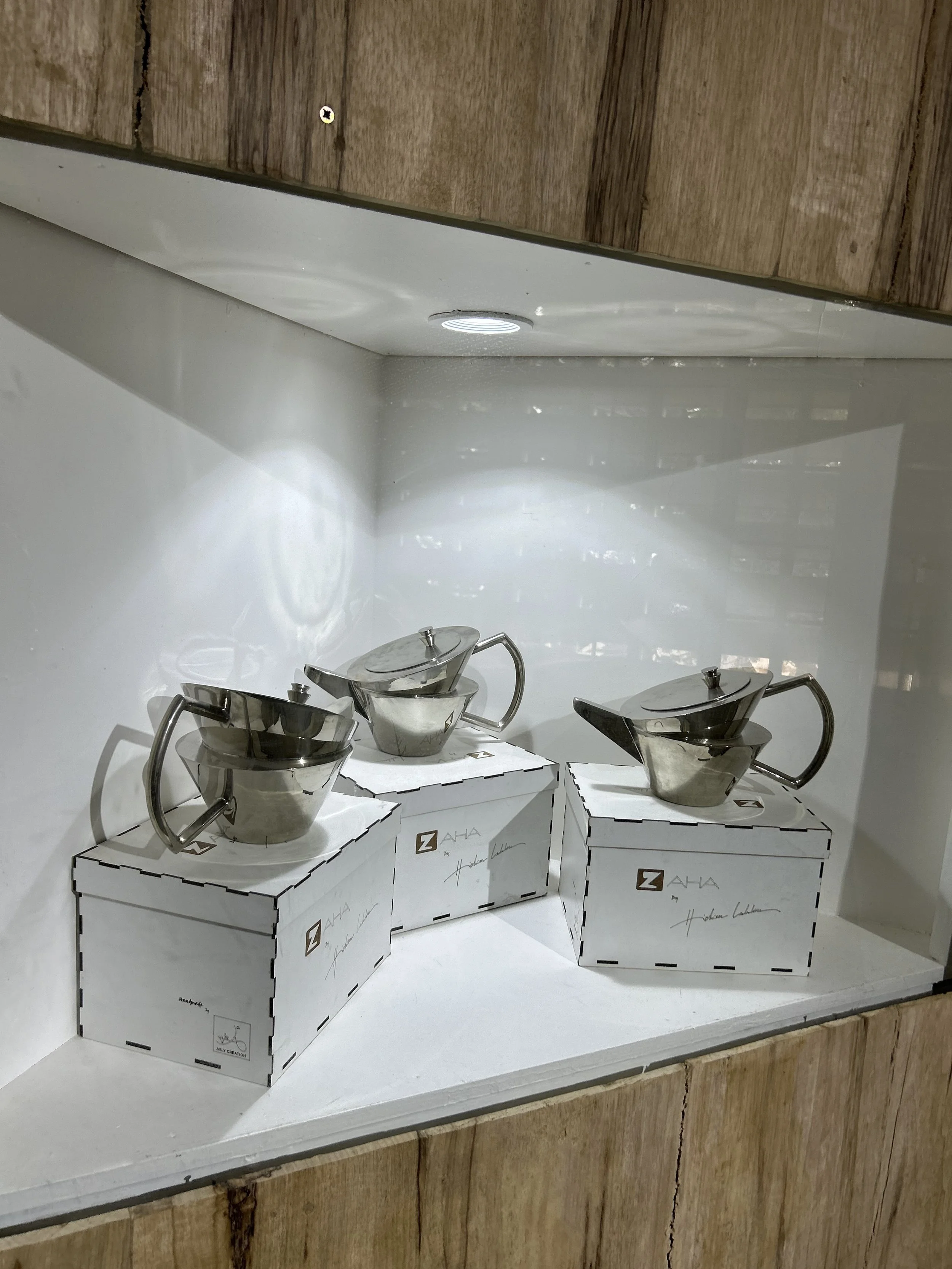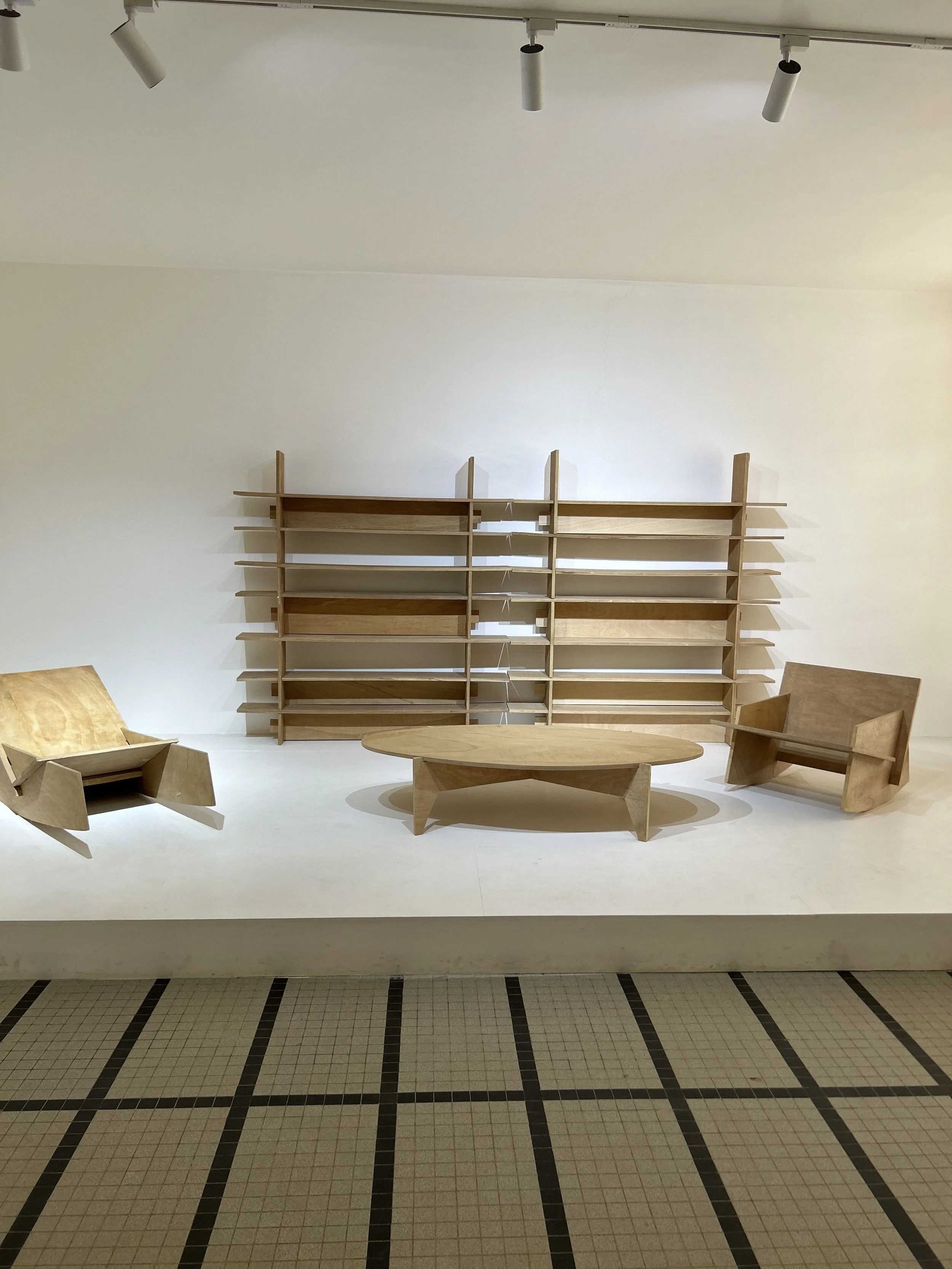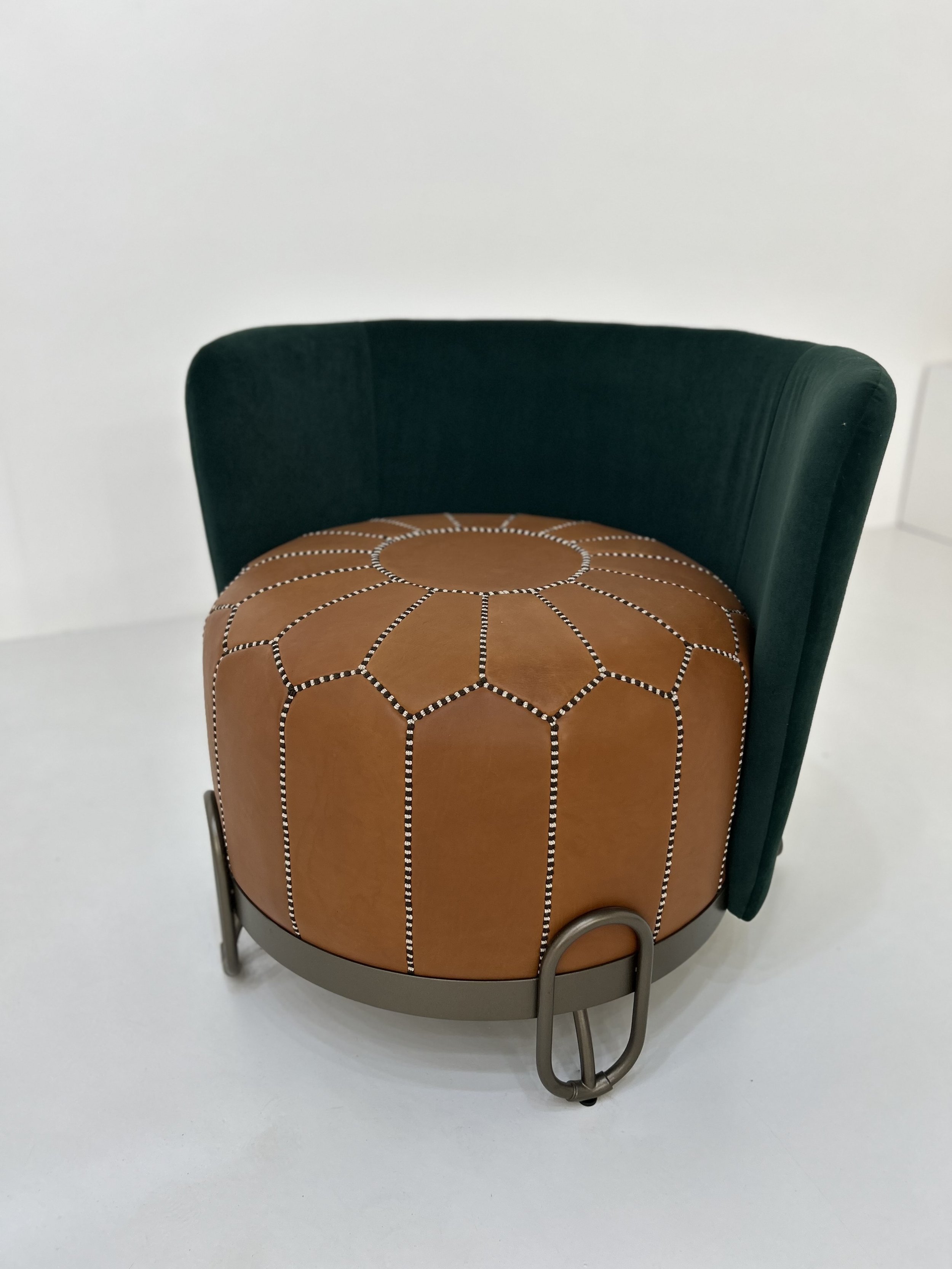Indigo Seats of Memory: How ADAMA’s New Salon Chairs Carry Diaspora Stories
ADAMA’s new set featuring two custom design chairs by BODDO Studio
When guests take their seats for this season of the ADAMA Arts Salon, they’ll be welcomed into more than a conversation—they’ll be held by history.
The chairs, custom-designed by ADAMA founding board member Aishah Rashied Hyman, are upholstered in indigo fabrics sourced directly from West Africa. “I’ve always loved indigo fabric and its connection to African people,” she shares. “So when Fahamu chose indigo as the textile for the chairs, I was excited and a little scared too! The fabric is beautiful, but requires more time to work with because of the intensity of the indigo dye, and the thickness of this particular fabric. But alas, the chairs are complete!”
The Significance of Indigo
Indigo is more than a color—it’s a story. For centuries, the deep blue dye, derived from the indigofera plant, was considered more valuable than gold. In many African traditions, it represents wisdom, healing, and spiritual protection . The Baule of Ivory Coast, the Mossi of Burkina Faso, and the Bamana of Mali each developed unique weaving and dyeing traditions, turning strips of cotton into vibrant symbols of resilience, identity, and artistry.
In Senegal, Aishah witnessed these legacies firsthand. On her 2024 visit to the Dakar Biennale (“The Wake”), she was immersed in exhibitions that honored design, textiles, and the power of African creativity to transform memory into material culture. It was also there that she sourced indigo cloth directly from local artisans—fabric that would soon find its way into the very seats of ADAMA’s conversations.
BODDO: Rest as Revolution
Image credits : Aishah Rashied Hyman for @boddo_studio
Through her design studio, BODDO—which means “`beautiful” in Fulani—Aishah creates furniture and textiles that merge comfort, heritage, and storytelling. Inspired by her ancestral roots among the Fulani people of Mali, her ethos is simple but radical: “rest is revolutionary.” The ADAMA chairs embody this philosophy, offering ergonomic comfort and cultural grounding for deep dialogue .
These aren’t just chairs—they are sanctuaries, places where artists, curators, and community members can gather in ease, ready to exchange ideas that stretch across the Diaspora.
Why It Matters
At a time when African and African American stories are too often erased, diluted, or misrepresented, ADAMA’s new Arts Salon seating makes a bold statement: our culture is worthy, our stories are necessary, and our rest is sacred.
Each indigo thread connects Atlanta to Senegal, Mali, Burkina Faso, and Ivory Coast. Each chair carries the hands of artisans, the memory of ancestors, and the vision of a Diaspora in dialogue with itself. And with every salon conversation, the seats will hold new layers of history—made here, in community, at ADAMA.


